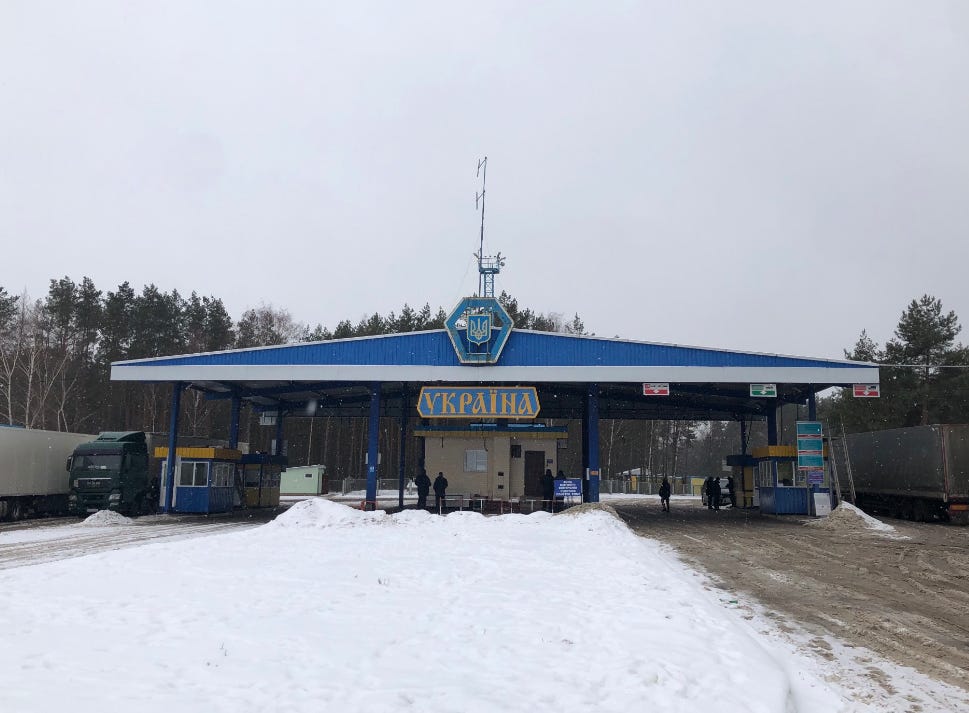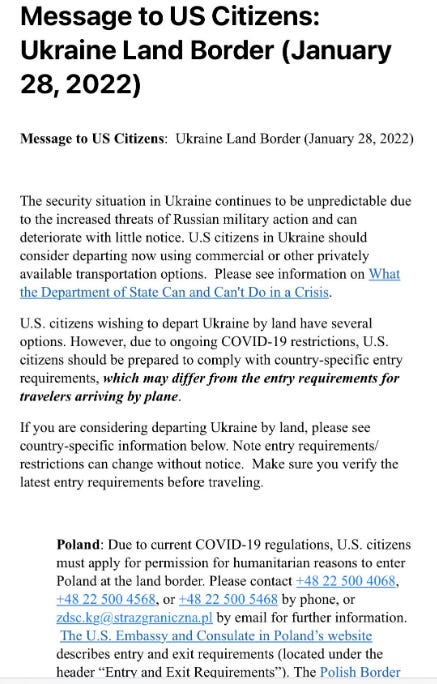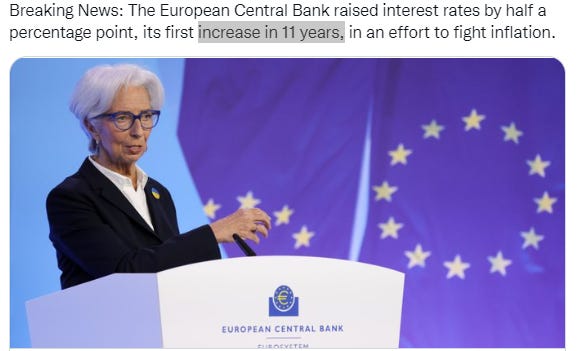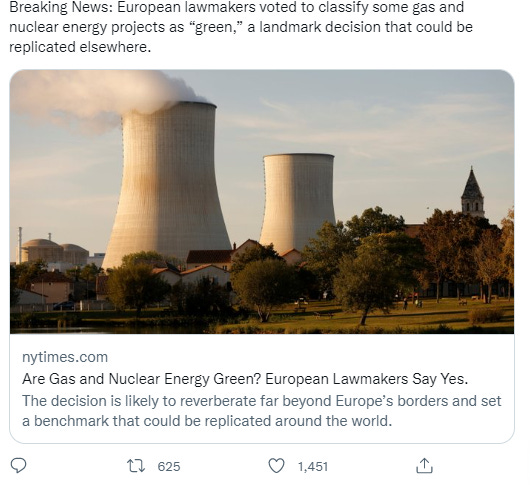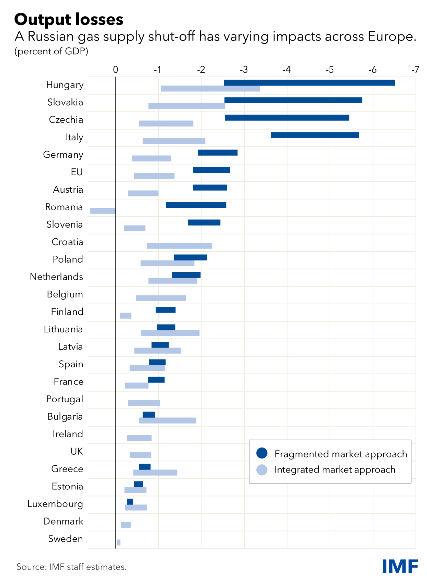High Price of War Amid Un-Wiser Decision Making on Ukraine-Russia Tension
Awkward but interesting to see Western journalists and the Ukraine President Zelensky (night, Jan 28th) not understanding each other. Tension between the Western mind that seeks a "single truth", e.g. mass invasion in X days (and if not, loss of interest, confusion). And Ukrainian experience of permanent war and threat of war. And real escalation (physically) war.
A plausible scenario locates the site on the Ukrainian border from which Russian troops might launch an incursion. But the risks for Russian President Vladimir Putin are considerable – and the West’s goals should be to make them prohibitive.
Russia (per Jan 26th) deploys elements of 10 army groups and an army corps near Ukraine. Of those, only 3 are permanently stationed to cover Russia's south-western borders. The increase is therefore substantial in terms of size and capabilities, but also broad in terms of the territory covered. The Russian Armed Forces have never conducted such an exercise in its modern history. Operations of every branch and service are now linked to Ukraine.
For sample, Interesting equipment on this train with 2 P-260T Redut-2US communication complex R-431AM antenna modules. There is also a truck with an Ural-VV armored cab typically used by Rosgvardia spetsnaz and an interesting Tigr-M, presumably also Rosgvardia. Russia's military buildup near Ukraine has expanded to include supplies of blood along with other medical materials that would allow it to treat casualties, in yet another key indicator of Moscow's military readiness, 3 U.S. officials tell Reuters.
(photo via Nolan Peterson)
Moscow switched from deterrence to compellence. The key issue is that the Kremlin believes Kyiv will remain hostile and is increasing its defensive capabilities. The costs of inaction are greater than an escalation.
A potential Russian advance on Kyiv could be rapid — frozen dirt or not (in the border Russia-Ukraine). So, a Post-midnight email (Jan 29th) from the US Embassy in Ukraine informs American citizens about land border options to leave the country. The border is open, but Ukrainian personnel take the Russian threat seriously. Some worry about their families back home.
The roads are excellent, frozen dirt or not (once again). While Russian forces continue to mass beyond the frontier, the Ukrainians are carefully carrying out their normal duties. Although it’s basically business as usual for now, the Ukrainian border guard troops are ready to defend their frontier.
Draw a straight line from Valuyki, strategically located north of the Russian-backed breakaway Donbas region and east of Kharkiv, to the large city of Dnipro on the river Dnieper. It is approximately 300 kilometers, the shortest possible distance to the formidable natural defense that the river provides. Controlling that line would enable Russia to cut off all of southern and eastern Ukraine, completely encircle the Ukrainian armed forces currently facing Donbas, and quickly compel them to surrender.
The immediate military rewards would be significant: complete control of the Sea of Azov, and secure defense of the land corridor to annexed Crimea, including fresh water flowing into the rain-starved peninsula. And if Ukrainian military resistance is unexpectedly weak, Russia could extend its land-grab beyond Odessa to the Moldovan border, cut off Ukraine’s access to the Black Sea altogether, and cripple its maritime economy.
If resistance is greater than Russian military planners predict, a fail-safe alternative is to withdraw swiftly to Donbas, inflicting heavy casualties by aerial bombardment on the encircled Ukrainian army to compel capitulation to the Kremlin’s peace terms.
Since the first week of January 2022, Russia has been moving its forces from the Eastern Military District to Western Russia and Belarus. The size of this deployment is significant. This translates to around 50% of the Eastern MD combat potential. From the start we assumed some of these BTGs will land in Belarus, which has indeed happened.
President Zelensky is asking for money (to Biden and EU) because the Russia war against Ukraine is also a permanent economic war, a war of destabilization, internal subversion, political manipulation,- plus cyber-attacks, sabotage attacks, actual combat in Donbas, provocation etc. Another recurrent threat of Blitzkrieg style invasion, and note, this was also the case in 2014, and it is again now.
Especially on the cyberwar, one thing that didn’t make it into the piece: It is also quite possible that there won’t be any cyber attacks when war begins, because Russian VVS will bomb Internet Exchanges to shutoff connectivity in country and limit information from getting out. Russian attacks on media outlets could cause news blackouts and impede the Ukrainian government's ability to communicate directly, sowing additional uncertainty & fear. When it comes to cyberdefense, the best time for preparation is yesterday. In modern military conflicts there is no such thing as a pure cyberwar. Cyberattacks are not even a separate front in an otherwise conventional conflict but rather an extension of warfare itself.
Cyberattacks against Estonia 2007, interventions in Georgia 2008 & Ukraine in 2014, recognition of Abkhazia & S. Ossetia as countries, annexation of Crimea, war in Donbas, hit squads in London (Litvinenko), Salisbury, Berlin & Tomsk killed Europeans & undermined European security. Compared to this list, how Western/NATO expansion -- the last major wave which took place 20 years ago-- "threatens" Russian/European security?
Today, Putin has deployed 130,000 heavily-armed soldiers to invade Ukraine. Isn't that a threat to European security too? Before this crisis, what had Ukraine, Biden, or Brussels done to threaten Russia? Nothing.
Equivalency arguments would be more valid if the US had invaded Belarus, recognized Chechnya as an independent country, supported separatists in Dagestan, sent hit squads into Russia for Snowden & Germany had annexed Kaliningrad. But of course, we haven't done any of this.
Every time, it could be an invasion. Every time, it could be a coup. And all the time, the Kremlin's goal is permanently to bully and undermine. Nord Stream 2 is part of the war against Ukraine. Dishonest Normandy negotiations are part of the war against Ukraine. Frightening off investors, and now diplomats, is part of the war against Ukraine.
Frightening off Western govts from advancing NATO/EU talks is part of the war against Ukraine. Frightening off Western govts from sending weapons to Ukraine is part of the war against Ukraine. While Zelensky doesn't always express himself in ways that the Western mind can understand, he is in essence explaining this reality of permanent war and coercion that, yes, could be a full-blown invasion tomorrow, or next month, or much later, or never.
The revolution of dignity was incredible proof, along with Zelensky’s election, that Ukrainians wanted self determination & self governance. When Trump tried to blackmail Zelensky by withholding aid he betrayed our democracy. Now both DC, Berlin, all Eu’s and NATO’s have a chance to really support their democracy.
Hard for Westerners to understand and accept, but this means there is no brighter future to look forward to, there is no sunlit upland to get to after going through a rough patch with the Kremlin, the opposition is permanent, and the conflict is permanent, already now. Deep down we ought to know this - think of election interference, military threats, assassinations on our soil, deliberate deception and manipulation on the part of Russian officials, permanent espionage (KGB style like Cold War).
DC is trying hard, surprisingly, to de-escalate war. Since mid-November, Biden administration has conducted at least 180 senior-level meetings or other contacts with Europeans. We will likely never see another US administration with that much good will vis-à-vis Europe willing to invest as much in a European crisis.
Yet we keep on expecting some magical moment, some clarity, maybe some catharsis even. But that is not the way of the Chekist Regime. Expect no fixed point, always expect a sliding scale of ambitions and full-spectrum violence. But we do need a new strategy, some kind of containment goal, backed up by a strong military posture, and by a full spectrum of tools of pre-emption, resilience, leverage, deterrence, defense, and punishment, in all areas of activity, civilian and military.
Vladimir Kara Murza, another Putin's opposition (beside Navalny) knows exactly what upsets Putin: it’s Magnitsky sanctions that go after Putin’s personal assets. Because of Vladimir’s campaign for Magnitsky sanctions, the Putin regime twice tried to assassinate Vladimir with poison. Murza begged the West to reveal & freeze Putin's personal (& related) wealth.
The Kremlin pursues pure & naked military aggression without any excuse. All see it. Why does Putin do something so blatant? Because he is afraid the Russian people will rise against his authoritarian kleptocracy.
Germany Problem (again)
Germany appears to have ended up in a dead end, suggesting it has neither strategy nor values. A few suggestions. First, Olaf must stand up and sanction Nord Stream 2 to stop this corrupt geopolitical project. Encourage the US to sanction Schröder (ex kanzlerin and commis on Gazprom) , & Warnig. The German Army must start serious arms deliveries to Ukraine. Stop blocking others' arms deliveries to Ukraine.
The result polls by ZDF actually questioned, and concerned. 73% of Germans against delivering weapons to Ukraine; 57% think Russia won't invade Ukraine (again); and 55% think we can rely on Russia to keep gas flowing despite the crisis.
Kanzlerin Olaf should punish Siemens & Deutsche Bank for their sanction & AML violations with Russia. Another punishment must go to, or minimum block transactions of the largest banks (Sperbank, Gazprombank, etc) and sanction export of technology, such as parts for mobile phones and car parts. That would hurt the Russian public more than Nord Stream 2 and SWFT.
Anna Baerbock (Foreign minister) from The Green Party, should fix energy policy between her colleagues in Green, so you are not the black supply hole in Europe. Return to your human rights commitment in the Helsinki Final Act, and Anna (must) demand freedom for Navalny between Putin jail.
Since Putin has proven that peaceful coexistence with him is no longer possible, the West needs to improve its defenses, let all vulnerable neighbors into NATO, & sanction Putin & his crooks so that they & their offspring can no longer exploit the benefits of the West.
How is Berlin going to deal with the fact that allies have stopped expecting more from us and started to expect less? Friedrich Merz (CSU) has put Swift sanctions back on the table, Scholz has clarified the line on Nord Stream 2. Looks like Germany is going to walk the walk in the event of an escalation. The distinction Berlin draws between diplomacy and deterrence is too stark, it has taken the government too long.
It’s just that it is not carrying as much water as many of us would like — German capability expectation gap. Germany and France are problems, but essentially for themselves. Nobody cares about them because their incompetence and egocentricity are all to obvious. They had better shape up for the future of Europe. Some of the criticism of Germany's Russia policy in recent days has tipped into unhelpful hysteria. But Germany is nonetheless struggling to lead Europe's response to the Ukraine crisis as it did under Merkel.
The Cold War reminds the entire West, especially Germany (in the past divided West-East) that we succeeded before to simultaneously deter Moscow and negotiate treaties with Soviet leaders who also thought radically different from us. For instance, the Helsinki Final Act signed in 1975 represented a major diplomatic achievement to enhance European security including West Germany-East Germany in 1975, and until today. Olaf should aim for a revived version of Helsinki today, but without any illusions about negotiating with a Russian interlocutor who thinks the way that we do.
Option Between White House and NATO
It’s not that Germany has impeded consensus decision-making in NATO. NATO alliance is an unwieldy consensus-driven massive bureaucracy now. Addition of new members (Ukraine) makes it even less nimble and effective. For example, The 8,500 troops Biden has ordered to prepare to go to Eastern Europe if Russia invades Ukraine can only be deployed by a consensus vote of all 30 NATO member countries. That could result in a bureaucratic disaster in the middle of the crisis, and effectively give a veto over the deployments to countries such as Germany, Hungary or Turkey — a situation Putin is sure to exploit. NATO members who border Ukraine or Russia could have to beg for approval for security reinforcements from more Russia-friendly countries, such as France, Germany, Hungary or Turkey, giving Putin a clear opening to manipulate those fissures
Hence Putin seems to have concluded that the best way to prevent Ukraine from deploying NATO weapons or joining the Alliance is to compel its leaders to agree to Russia’s humiliating terms. Putin’s long-stated desire to destabilize Ukraine and bring it back into its sphere of influence suggests that the Kremlin views Ukraine’s proper role as that of a vassal state. And because the perverse logic dictating military force is apparent, so is the difficulty of concluding a deal to prevent it.
The United States and European powers have already ruled out deploying troops on the ground in Ukraine. They have also failed since 2014 to arm Ukraine sufficiently to make a Russian invasion too costly. Only now is this being seriously discussed, which at this point may merely persuade Russian military strategists to accelerate their invasion plans. Neither a no-fly zone over Ukraine nor a blockade of the entrance to the Black Sea has been proposed, although Turkey could, in principle, be requested to show NATO solidarity by invoking the 1936 Montreux Convention to interdict Russian shipping in the Bosphorus.
The US and Europe are relying almost entirely on targeted economic sanctions as a deterrent. But sanctions have not deterred Russia in the past.
Russia is adept at exploiting EU discord, playing off hawkish Poland and the Baltic states against a dovish Germany, Italy, and Hungary. For example, while excluding Russia from the SWIFT system for international payments would potentially be very damaging, German opposition leader Friedrich Merz is already pushing back against the idea. The deep division in EU views would persist even if Russia launched a war of aggression against Ukraine, with draconian sanctions watered down as opposition to them grows.
One sanction that would have a significant effect is confiscation of Russian political elites’ offshore financial assets. The proceeds could be held in escrow for eventual payment to Ukraine as war reparations for harm caused by Russia. The US and European governments should enact whatever legislation is required to give themselves the necessary powers. These laws should be widely publicized and disseminated.
Such “smart” sanctions may not seem overwhelming, but the Kremlin is ruled by greed and personal interest, not ideology. Russian leaders are clearly sensitive about the possibility. When the US announced plans to include personal sanctions against Putin and other top officials, the Russians declared that this would be an “extreme” step signifying a complete breakdown in bilateral ties. The US and Europe should interpret this as a sign of how effective a threat of permanent damage to the financial interests of Putin and his entourage would be.
If Russia believes any of its own propaganda, President Putin thinks that what he is confronting in Ukraine is not Ukrainians but the entirety of the West (include DC). A limited-scale operation brings no benefits Russia doesn’t already have, while a full-on onslaught designed to take and hold Ukrainian territory is considered beyond the reach of the force currently assembled.
Misses the point that it already has been used – it is precisely this concentration of Russian troops that has brought the US to the table to talk about what Russia wants. And away from the immediate and explicit demands tied to the troop buildup, Russia has achieved other, secondary, objectives. Issues previously at the front of western minds, such as Russia’s occupation of Crimea and continuing ceasefire violations in eastern Ukraine, have been swept aside by more urgent concerns over imminent escalation.
This isn’t even the first time Russia has done this. After the seizure of Crimea in 2014, Russia caused surprise with the speed and effectiveness with which it moved large numbers of its land forces to the border with Ukraine. But the main role of those forces throughout most of 2015 was to sit on the border, augmenting and depleting as required, in order to focus the attention of the west and provide the menace to reinforce Russia’s demands for a flawed and unworkable “ceasefire”.
Zelensky point-out that responding to Russian threats with “panic” only serves Moscow’s interests. Early concerns that Russia would mount a hostile demonstration in order to force the pace of negotiations have not been borne out.
Instead of Putin delivering his promised “military-technical response”, the process has dragged on, with its economic cost steadily mounting. Russia may soon feel it needs to make its move, but we shouldn’t expect that move to be the one everybody is waiting for. Putin sees Western retreat (and failure) from Afghanistan as a green light to invade Ukraine. China sees American passivity toward Ukraine as a green light to invade Taiwan.
Putin was obviously in the moral wrong to invade Crimea and Donbas which is illegal. Ukraine deserves independence. But the best chance for de-escalation and diplomacy is for there to be some agreement for neutrality. But (too), the US interest here and a call for diplomacy and de-escalation is not somehow taking the Russian line as some of the comments suggest. These are not easy diplomacy and de-escalation. But honest debate without impugning patriotism is when and will allow for wiser decision-making between each other to prevent a war.
The “not easy” job, It's the job of the US intelligence officer to assign probabilities about Russian invasion of Ukraine. It's the job of the US policy maker to try to reduce those probabilities, no matter what they are. If the IC says its 50%, the WH/State wants to move it to 45%. If 20%, get to 10%. Whatever intelligence gathered by the CIA or NSA, Putin may still decide not to invade. But whether he does or not, the Russian president’s behavior is being driven by an interlocking set of foreign policy principles that suggest Moscow will be disruptive in the years to come.
Regardless of the US’s ultimate position, this is the reality the White House faces. If Western don’t ensure that Russia pays a high price for its aggression against Ukraine, that will send a message for another (U.S.) problem: a clear message to China that it can attack Taiwan with impunity."




